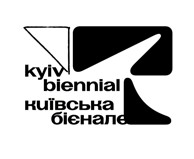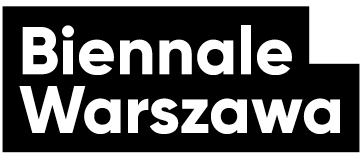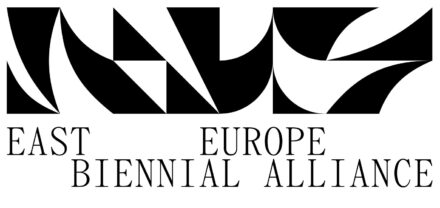Armed Democracy
Russia’s full-scale invasion of Ukraine, which put its people under mass physical and political extermination, has forced the European continent to question the very foundations of the institutional order it had been based on since the end of World War II. In the situation, when not just the future but the very present of Europe at large has appeared under direct existential threat from the Russian fascism, all the basic categories that the post-Nazi world relied on, such as democracy and authoritarianism, historicism and neocolonialism, pacifism and demonstration of protest, require a profound revision and change. The system of ideological coordinates as well as the outlines of the political spectrum we have been used to operate in are to be rearranged to tackle a new catastrophic reality.
The fundamental difference that we face in Europe at the moment between the Western approach characterized by the pursuit of peace and the Eastern one focused on liberation and independence poses a dramatic challenge – in order to survive and progress, democracy as a political regime has to be capable of defending itself also in a military way. What changes does it bring to the idea of the nation-state and the principles of internationalism? How will the notions and practices of citizenship, rule of law and human rights and freedoms be altered? In what way does it affect an economic apparatus and constitute the modus vivendi of our societies anew? How could a new political paradigm be safeguarded against imperialist and fascist misuse to prevent political and military violence by the strong against the weak?
Conceived by the Kyiv Biennial and Biennale Warszawa from the East Europe Biennial Alliance, this special public program Armed Democracy, curated by Vasyl Cherepanyn within the 2nd edition of Biennale Warszawa, revolves around the concepts of imperialism, liberation, fascism, autocracy, revolution, and militarization in pursuit of the world to come on Europe’s burnt out land. The program is a first part of the series organized by the East Europe Biennial Alliance discussing Russia’s military invasion of Ukraine and taking place in Warsaw, Prague, Kassel, and Riga over the summer and fall of 2022.
PROGRAM
01.07.2022
18:00-19:30 CEST
The Reckoning Project: Documenting Russian War Crimes in Ukraine
Nataliya Gumenyuk and Angelina Kariakina
[online]
The Reckoning Project: Ukraine Testifies was launched in the early days of the war, while evidence is fresh in the minds of the victims and other witnesses, for both testimony-gathering purposes and for the historical record. Over the course of 12 months, The Reckoning Project will have a mandate to investigate alleged human rights violations and abuses, and make recommendations on accountability measures. The project will also collect and amplify the testimonies of witnesses and victims of Russian aggression, including those affected by discrimination, displacement and crimes against humanity. The project’s aim is to build summaries into cases to present to international and national courts. The stories of war must be told accurately, sensitively and respectfully and present a complete narrative. In the past, victims’ stories weren’t told until well after a conflict had concluded, which deprived so many of access to justice. Human rights reporting, documenting evidence and gathering testimonies and legal summaries is urgently required as the war continues.
04.07.2022
18:00-19:30 CEST
Intelligentsia Unarmed. The Western Discourse Bubble and the Realities of War in Europe
Karl Schlögel
[online]
For most Western intellectuals Ukraine ceased to be terra incognita late, after the Russian occupation of Crimea in 2014, and finally after the Russian war of annihilation unleashed on February 24 this year. The images from Mariupol, Kharkiv, Kyiv and Bucha destroyed the hermetic bubble of discourses showing the barbaric reality of warfare. Intellectuals learned about their ignorance and limitations of their knowledge about Europe’s East. Many took that lesson to heart and started to educate themselves, but many cling to outdated clichés, refusing to update their mental maps.
05.07.2022
18:00-19:30 CEST
On Militant Democracy
Jan-Werner Müller
[online]
The idea of “militant democracy” refers to the need for democracies to defend themselves against those who seek to use the institutions of democracy to abolish democracy. The notion was developed in the 1930s and has experienced a major renaissance in recent years, against the backdrop of the much-discussed “crisis of democracy.” Its practical core used to be party bans and restrictions on free speech, but in a twenty-first century context new ideas – such as disqualifying individuals from running for office – have also been discussed. The idea has always been controversial, the main worry being that, in the process of defending itself, a democracy will already become authoritarian. The talk will address these dilemmas; there will be a discussion afterwards to see to what extent militant democracy should be applied in different countries today.
06.07.2022
18:00-19:30 CEST
Ukrainian Culture at War
Tamara Hundorova and Serhy Yekelchyk
[online]
The Post-Soviet Generation and the Trauma of Decolonization by Tamara Hundorova
The talk will focus on the formation of a new post-Soviet generation, that in the 1990s started with the feeling of homelessness and came to the responsibility for the “last territory” you have to fight for. In the center of this talk is the autobiography of this generation as it is reflected and depicted in Serhiy Zhadan’s texts. It will argue that this generation is one of the main symbolic targets that Russia wants to destroy and to colonize, erasing its memory and history.
Ukrainian Mass Culture and Symbols of Resistance to Russian Aggression by Serhy Yekelchyk
This talk will analyze the nature of such iconic images of Ukrainian defiance as “the Russian ship” meme, Patron the mine-sniffing dog, the kitchen cabinet, and others. It will identify the cultural logic that endeared them to the mass audience, while other such cultural symbols never gained wide popular appeal or remained in the limelight only briefly.
07.07.2022
18:00-19:30 CEST
Apathy Towards Authoritarianism and Aggression
Renata Salecl
[online]
The Russian attack on Ukraine opened up questions about the psychological mechanisms at work in post-socialist regimes, which have allowed for the passivity of people in Russia. The authoritarian regime there relies on apathy which is not dissimilar to the one in the old Soviet times. In a country where it is no longer a secret that lying and cheating lead to success, for many people, apathy takes the form of disinterest in the political struggle, cynicism and resignation in the face of authoritarian power. Apathy also contributes to feelings of passivity regarding the war and to the strategies of denial that some people in Russia embrace about the atrocities that the Russian regime caused in Ukraine.
Apathy, however, is not only a response to authoritarianism; it is very much linked to the modus vivendi of neoliberal ideology. Thus, it is not surprising that we hear so much about the increase in burnout and compassion fatigue in the developed world. The lecture will question the logic of apathy today. It will also address the idea of the “right to apathy,” which was fashionable in the mid 20th century among some American political theorists. In conclusion, the lecture will question the problem of apathy toward war and compassion fatigue that often happens in times of horrific aggression.
08.07.2022
18:00-19:30 CEST
Nuclear Blackmail and Fossil Fascism
Svitlana Matviyenko and Oleksiy Radynski
[online]
Nuclear Blackmail and Cyberterror by Svitlana Matviyenko
The occupation of both Chernobyl and Zaporizhzhya NPPs in late February – early March 2022 created a sense of catastrophic proximity and, in some ways, echoed the nuclear threat articulated by Vladimir Putin on February 27, when he ordered the Russian minister of defense and the chief of the general staff to transfer deterrent forces of the Russian army to a “special regime of combat duty” as the occupation of the nuclear power plants weaponized their infrastructure by turning it into a nuclear weapon. These instances of “nuclear terrorism” lie at the nexus of “cyber” and “nuclear” warfare, where the two major forces of cyberwar converge for a full realization of its grimmest scenario.
Russian Fossil Fascism Is Europe’s Fault by Oleksiy Radynski
This presentation focuses on the case study of the infamous Nord Stream gas pipeline and its implication with Putin’s war in Ukraine. Launched in 2011, this project made Germany de facto complicit in the emergence of the Russian “fossil fascist” regime. The profits from the European consumption of gas were funding Russia’s military machine, while reliance on cheap Russian gas had delayed the energy transition from fossils to renewables, worsening the climate emergency. By joining the Nord Stream project, Germany had signaled – perhaps, unwittingly – that all the talk about Ukraine’s role in the European project is nothing but hollow rhetoric. In the European reality that emerged after the collapse of the Soviet Union, the newly independent Ukraine has been ascribed, shamefully, with only one real geopolitical role: that of a transit zone enabling the deliveries of Russian fossil fuels to their European consumers via the Soviet-era oil and gas pipelines buried in the Ukrainian land. The major rationale behind the Nord Stream project was to render this gas transit zone obsolete; at the moment when Germany had agreed to strip Ukraine of its transit potency, the stage for Russia’s 2022 invasion had been set.
09.07.2022
18:00-19:30 CEST
Lessons of the Russo-Ukrainian War
Alexander J. Motyl
[online]
The Russo-Ukrainian war has changed geopolitical reality and put into question the post-World War II international system. Whatever the war’s outcome, democracy, authoritarianism, peace, war, liberalism, and illiberalism will be importantly affected.


